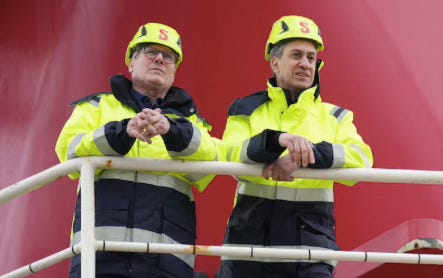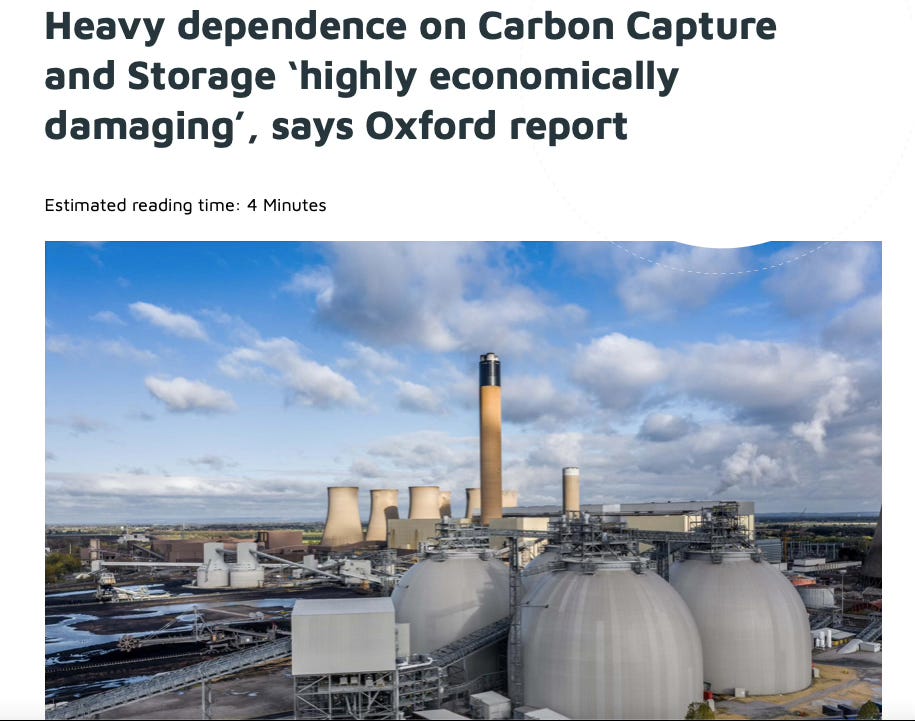Published in the Edinburgh Evening News, October 9th, 2024.
Isn’t it interesting that Starmer’s £22bn commitment to build two carbon capture and storage (CCS) plants, neither of them in Scotland, matches Reeves’ fictional £22bn ‘black hole’?
Oil and gas companies are salivating at the prospect of public money being used to enhance their extraction rates and profits. The Teesside plant is backed by BP and Norway’s Equinor and the northwest England and Wales plant is backed by the Italian oil company, Eni.
CCS technology has been around since the 1920s but there are just 45 full-scale commercial projects in the world and 29 of these exist purely to enhance oil recovery (EOR). 80% of what’s currently ‘captured’ is injected back into oil fields to extract more oil to burn. Oil companies in the US get a generous tax credit for EOR that’s currently $26 for each tonne of carbon they sequester underground, but will rise to between $60-130/tonne by 2026. Is it any wonder they’re climbing on the CCS bandwagon? As ever, follow the money.
Ecotricity, English Labour’s biggest corporate donor, has given £3.4m since Starmer became leader.
CCS captures just 0.1% of global emissions - 45 million metric tonnes of CO2. In 2023, the UK emitted 384.2 million tonnes of CO2 equivalent, and the world, over 40 billion tonnes.
A 2023 report from the Oxford Smith School of Enterprise and Environment examined the costs and benefits of “CCS-heavy” - keep burning fossil fuels and use CCS to capture and store emissions - vs “CCS-light” - power up renewables and only use CCS for industries like steel and cement manufacturing that are hard to decarbonise. It found the CCS-heavy trajectory will cost $1 trillion more per year than CCS-light.
Furthermore, the cost of renewables keeps falling whereas CCS costs remain stubbornly high.
In addition, you need to find a good place to store carbon and often those places are nowhere near where it’s captured. Once you’ve moved it to the storage facility, there’s a risk of leaks. And who will take responsibility for leaks or for monitoring the reservoirs as they fill up? Oil and gas companies are already writing their own rules for CCS.
There’s only one solution to reducing CO2 and it’s not CCS. We must replace fossil fuel infrastructure with renewables which is where Scotland has a huge competitive advantage over the rest of the UK. Instead of the Scottish People enjoying an energy bonanza and all the wealth that entails, our resources have been sold to private corporations and the energy and taxes from this bounty are flowing south.








